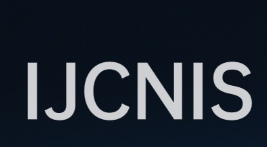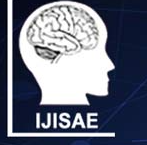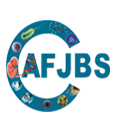- Call Us : (+91)76694 09022
Press 1 (For International Conferences with Journal Publications)
- +91 8122268465
- icraeca@iferp.net
For Publication Support in Q3, Q2, Q1 Journals: Please contact us @+91 8122268465 / email id: icraeca@iferp.net
At IFERP., We are extremely serious about issues pertaining to publishing ethics. Every article will undergo peer review by numerous subject-matter specialists since, in our opinion, the peer-review publication process is a crucial component of academia, and its integrity must be upheld at all costs. Peer review calls for professionals in the relevant sectors to provide their thoughts and suggestions for how to make the submissions better.





Note : International Conference on Recent Advances in Engineering and Computer Applications (ICRAECA-2025). proceedings series will be submitted to the Web of Science Book Citation Index (BkCI) and to SCOPUS for evaluation and indexing(T&C)**

ISSN: 2073-607X

ISSN: 2147-6799

ISSN : 2663-2187

ISSN : 2620-2832

ISSN : 2525-3654

ISSN : 2662-995XE-ISSN:2661-8907

ISSN : 2764-4170

ISSN : 2412-0650

ISSN : 1690-4648

E-ISSN : 2379-1101

ISSN : 2299-8624

ISSN : 2325-0399 (ONLINE) | ISSN : 1935-0090 (PRINT)

ISSN : 2634-1964E | ISSN : 2210-8327

ISSN : 1895-3735E | ISSN : 2353-6977

ISSN : 0253-7214

Print ISSN: 0252-2667 | Online ISSN: 2169-0103

Print ISSN: 0972-0510 | Online ISSN: 2169-0014
ISSN : 2583-1941
ISSN : 2583-1127
ISSN : 2583-3731
ISSN : 2582-7405
ISSN : 2583-066X
ISSN : 2583-4649
ISSN : 2582-7480
ISSN : 2583-3154
Ethics and publication practices are crucial aspects of the scholarly community to ensure the integrity, credibility, and reliability of research. For the 3rd Asia Pacific Conference on Educational Research, Social Science and Humanities (APCERSSH), participants and authors are expected to adhere to ethical standards and avoid publication malpractices. Here are key principles
Authors, reviewers, and conference organizers are encouraged to familiarize themselves with ethical guidelines and collaborate to maintain the highest standards of integrity in research and publication. Violation of ethical standards can have serious consequences for the individual researcher and the academic community as a whole.
Publication Opportunity in Premium publishers Journal which are indexed in SCIE & Scopus
 Regular Issue
Regular Issue
 Special /Thematic Issue
Special /Thematic Issue
Publication Opportunity in Journals which are indexed in Scopus
 Regular Issue
Regular Issue
 Special /Thematic Issue
Special /Thematic Issue
Web of Science subscription- based service gives you access to numerous databases with citation data for academic areas.
Publication Opportunity in Journals which are indexed in Google Scholar and other premium index agencies
 Regular Issue
Regular Issue
ABDC (Australian Business Deans Council) is a renowned organization that plays a pivotal role in assessing the quality of business and management journals Register Register
IFERP offers support and opportunities for academics who aim for excellence in their research activities. A good way to develop cutting-edge technologies for the benefit of society is through research.
![]() Grammatical Corrections
Grammatical Corrections
![]() Language Editing
Language Editing
![]() Plagiarism correction
Plagiarism correction
![]() Proofreading
Proofreading
![]() Research Paper Editing
Research Paper Editing
![]() Case Report Editing
Case Report Editing
![]() Synopsis Editing
Synopsis Editing
![]() Thesis Editing
Thesis Editing